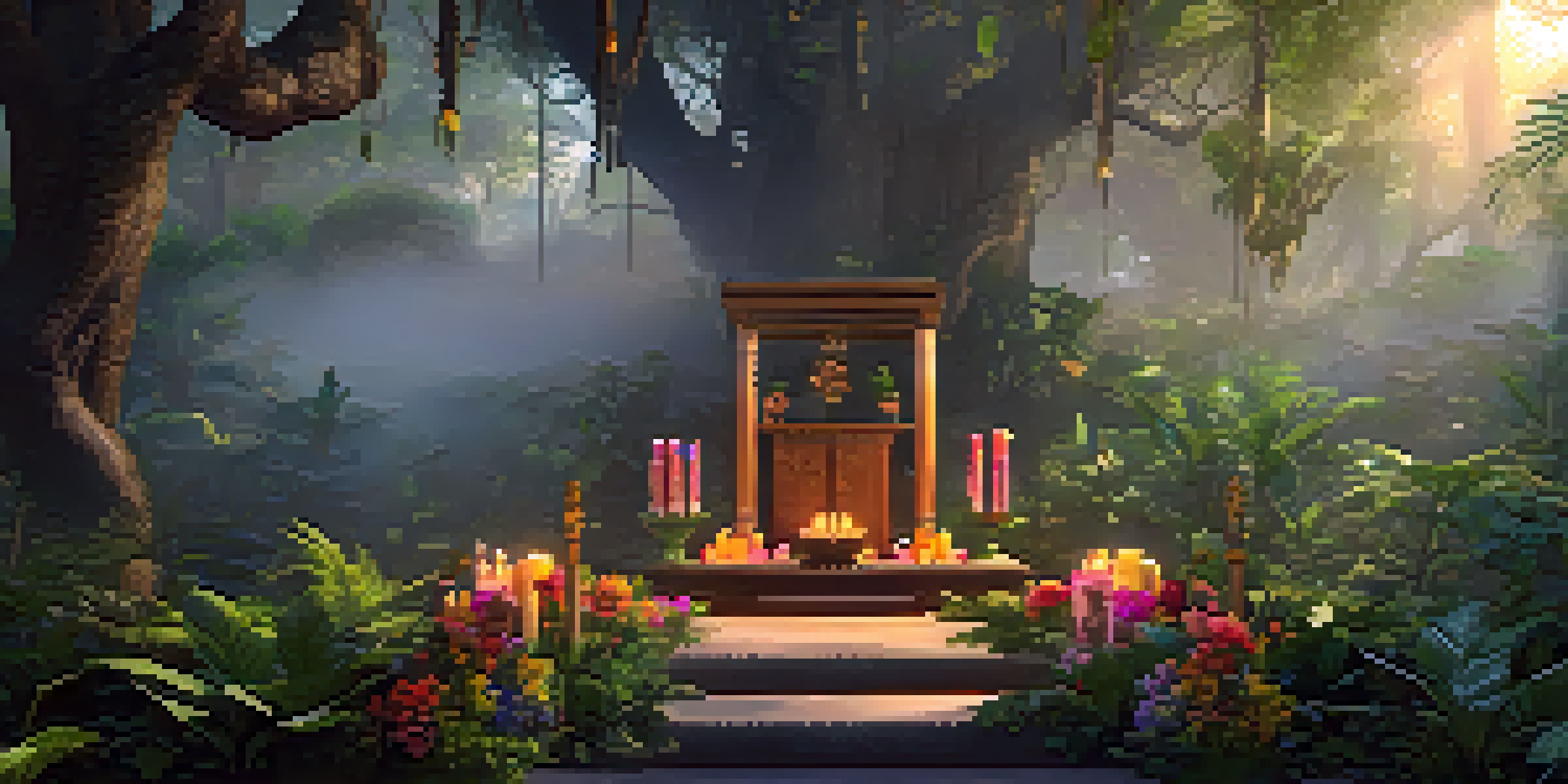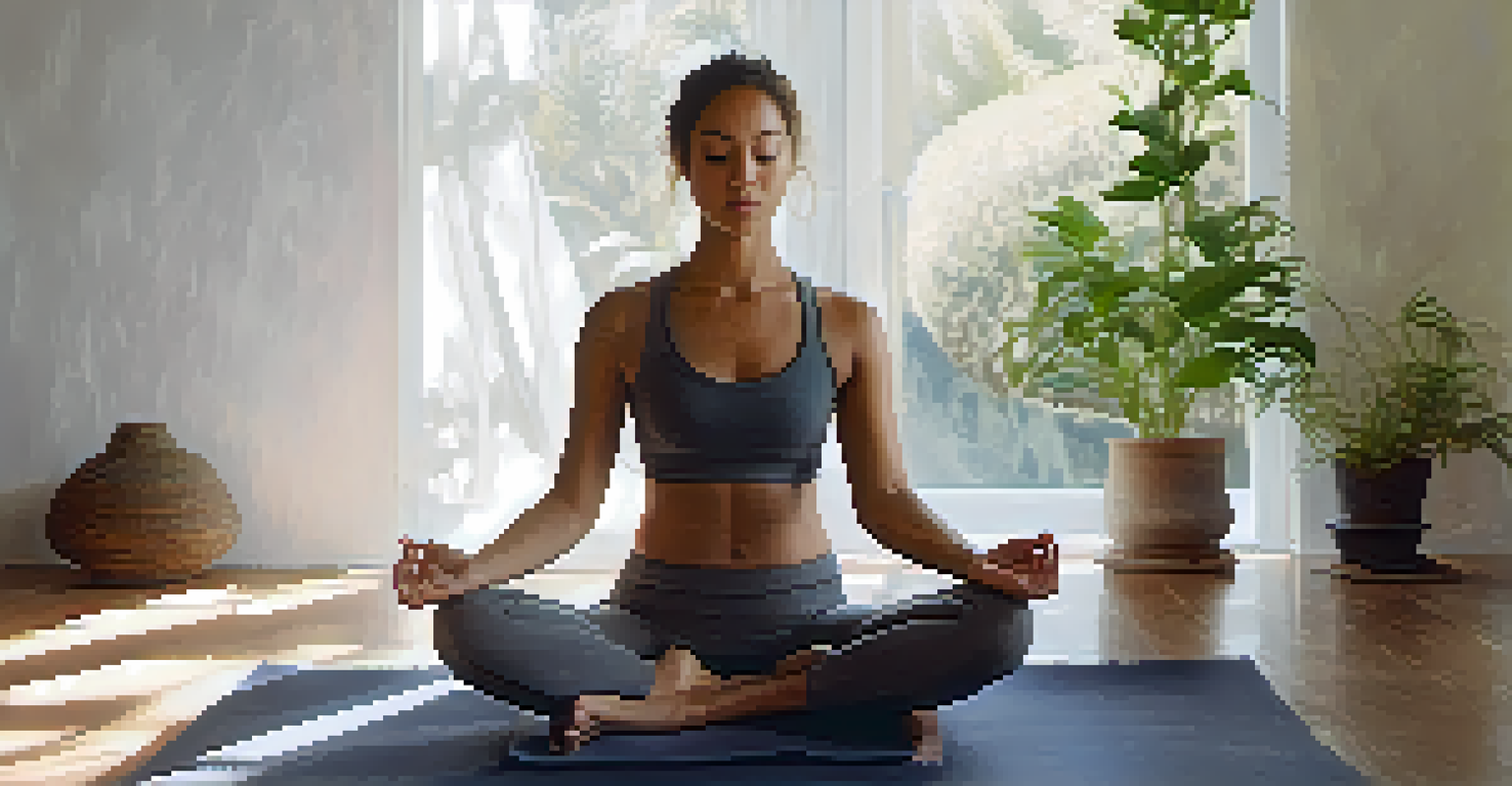Personal Responsibility: A Guide for First-time Ayahuasca Users

Understanding Ayahuasca and Its Impact on Your Journey
Ayahuasca is a powerful brew made from Amazonian plants, often used in spiritual ceremonies. It's known for inducing intense experiences that can lead to profound insights about oneself. As a first-time user, it's crucial to understand that these experiences can be overwhelming and deeply emotional.
The only journey is the one within.
The effects of ayahuasca can vary widely, depending on the individual and their mindset at the time of consumption. This means that personal responsibility becomes paramount; how you prepare mentally and emotionally can significantly influence your experience. It’s essential to approach this journey with an open heart and a willingness to face the unknown.
By acknowledging that you are responsible for your own experience, you set the stage for a more transformative journey. Being aware of this can help mitigate feelings of fear or anxiety, allowing you to embrace the process fully.
Preparing Mentally and Emotionally for Ayahuasca
Preparation is key when it comes to ayahuasca. It’s not just about the physical aspects, like diet, but also about your mental and emotional state. Engaging in practices like meditation or journaling can help ground you and clarify your intentions for the experience.

Setting clear intentions can provide focus during your journey. Ask yourself what you hope to learn or heal through this experience. By articulating your goals, you’re more likely to stay aligned with your personal responsibility throughout the ceremony.
Importance of Mental Preparation
Preparing mentally and emotionally is crucial for a positive ayahuasca experience.
Remember, it’s natural to feel a mix of excitement and apprehension. Embrace those feelings, and remind yourself that they are part of the journey. The more prepared you are, the more empowered you’ll feel during the experience.
Choosing the Right Setting and Guide
The setting in which you consume ayahuasca can greatly influence your experience. It’s essential to choose a reputable retreat or guide who prioritizes safety and has a solid understanding of the medicinal properties of ayahuasca. Research their practices and read reviews from past participants.
Your task is not to seek for love, but merely to seek and find all the barriers within yourself that you have built against it.
A good guide will create a safe and supportive environment, allowing you to explore your inner self without fear. They should also provide aftercare and be available for discussions post-ceremony, helping you process your experience. This is an essential part of taking responsibility for your journey.
Trust your instincts when selecting a guide. If something feels off, it’s okay to look for alternatives. Your comfort is crucial; a supportive atmosphere can help you delve deeper into your experience with confidence.
Understanding the Role of Set and Setting
The concept of 'set and setting' refers to your mindset (set) and the physical and social environment (setting) during your experience. Both play a significant role in shaping how you perceive and process what happens during the ceremony. Understanding this can help you harness your personal responsibility.
For instance, if you arrive with a positive mindset in a serene, supportive environment, you’re more likely to have a beneficial experience. Conversely, negative emotions or a chaotic setting can lead to challenging experiences. Acknowledge that you have the power to influence both your mindset and your environment.
Choosing the Right Setting
The environment and guide you select significantly influence your journey with ayahuasca.
Before the ceremony, take time to create a space that feels safe and nurturing for you. This might involve arranging comfortable seating, calming music, or even inviting supportive friends to join you. These small steps can aid in taking ownership of your experience.
Navigating Emotional Challenges and Insights
Ayahuasca can bring up deep-seated emotions and unresolved issues, which may feel overwhelming at times. It’s essential to recognize that these emotional challenges are part of the healing process. Embracing them with an open heart allows for genuine healing and understanding.
When faced with difficult emotions, remind yourself that it’s okay to feel uncomfortable. This is a space for exploration and self-discovery, and sometimes that means confronting aspects of yourself you may have avoided. By accepting these emotions, you are taking responsibility for your healing journey.
Consider keeping a journal during the experience to document your feelings and insights. This reflection can help you process challenging emotions and transform them into valuable lessons once the experience concludes.
Post-Ceremony Integration and Reflection
After your ayahuasca experience, the integration phase is crucial. This period allows you to reflect on the insights gained and how they apply to your everyday life. Taking responsibility for this process helps bridge the gap between your experience and your daily existence.
Consider discussing your experience with your guide or fellow participants. Sharing your insights can provide clarity and support as you navigate the changes in your life. This communal aspect can foster a sense of belonging and understanding as you process your journey together.
Integration Post-Ceremony
Reflecting on and integrating insights gained after the ceremony is vital for lasting change.
Additionally, incorporate practices like meditation, art, or nature walks to help ground you in the lessons learned. This integration phase is vital for ensuring that the insights gained during the ceremony lead to meaningful change in your life.
Embracing Personal Responsibility Beyond the Ceremony
The journey doesn’t end once the ayahuasca experience is over. Embracing personal responsibility means continuing to apply the insights gained long after the ceremony. This mindset can lead to lasting transformations in your life and relationships.
Consider setting new goals or intentions based on what you learned during the ceremony. This can include adopting healthier habits, improving communication with loved ones, or pursuing passions you may have neglected. Each step you take reinforces your commitment to personal growth.

Remember, personal responsibility is an ongoing practice. By continually reflecting on your experiences and actively applying insights, you create a richer, more fulfilling life—one that honors the journey you've undertaken.